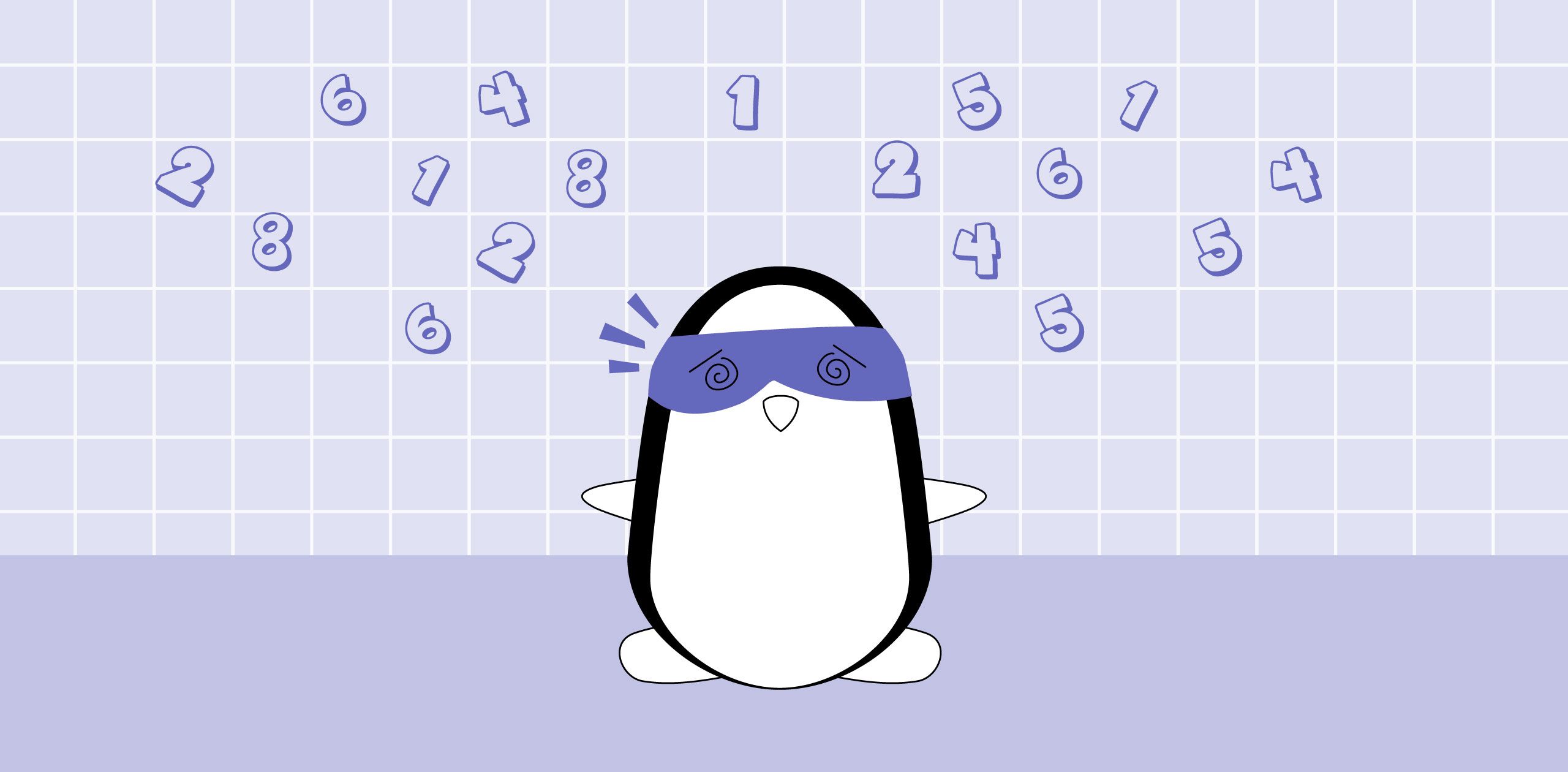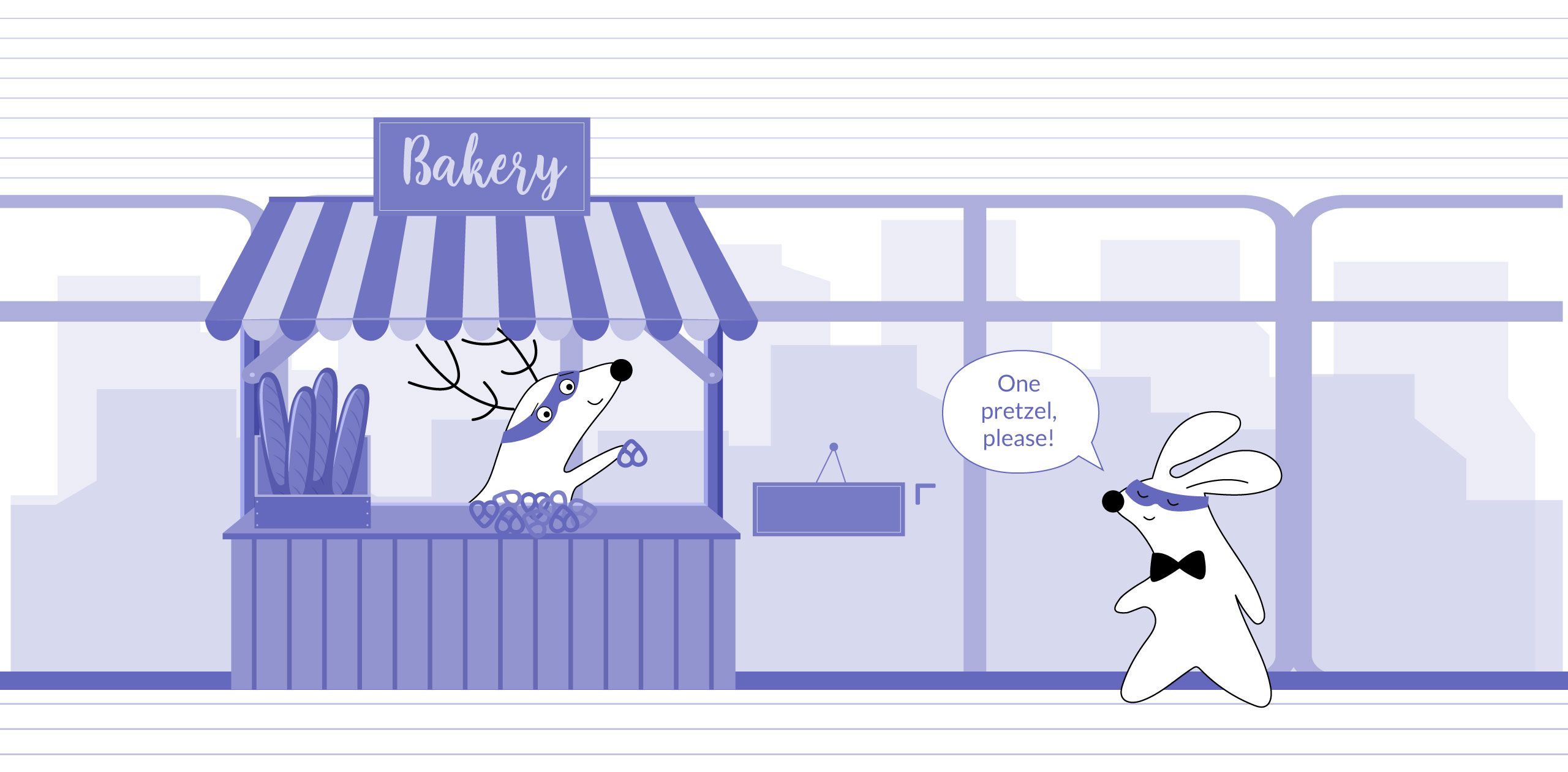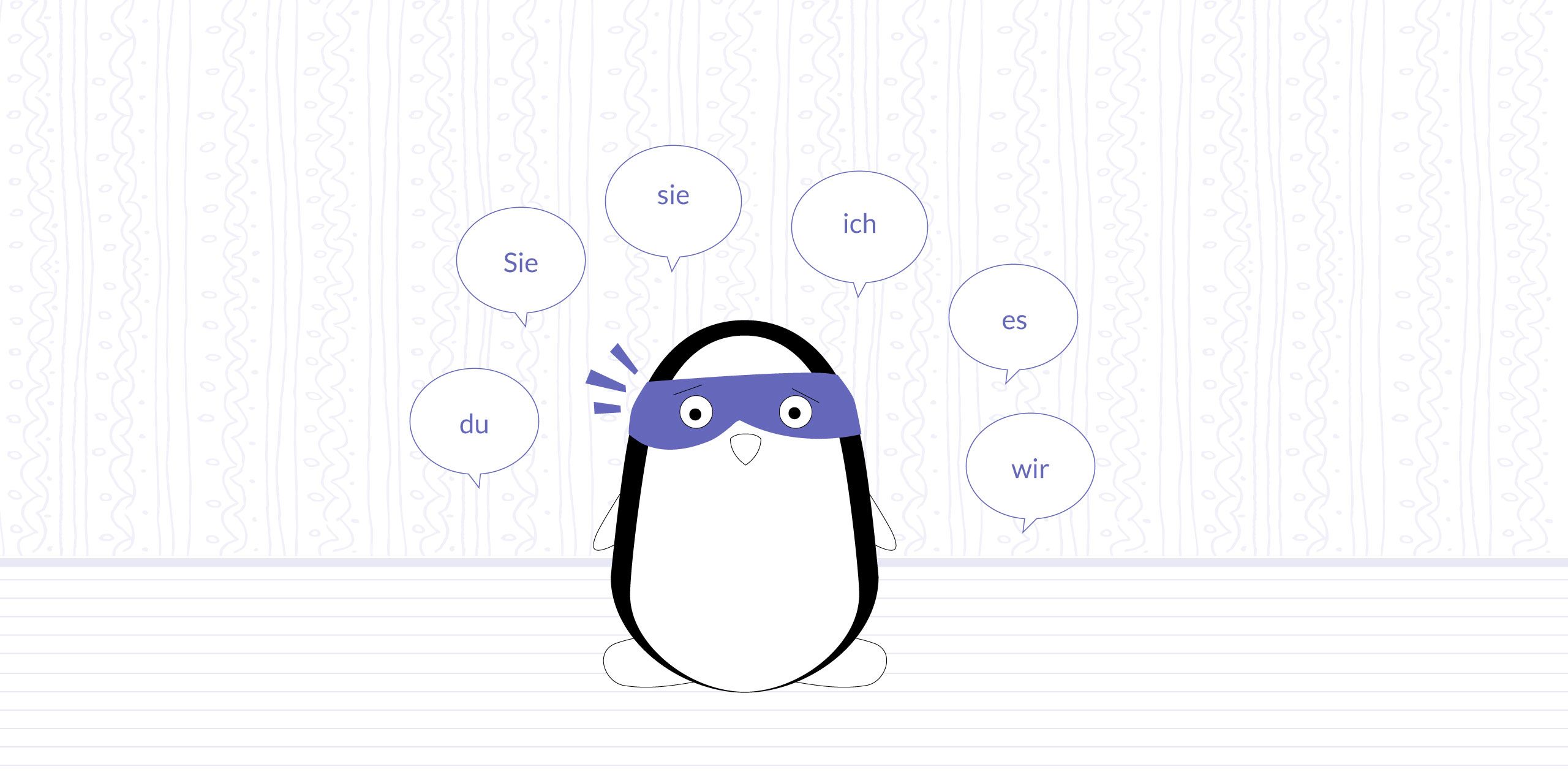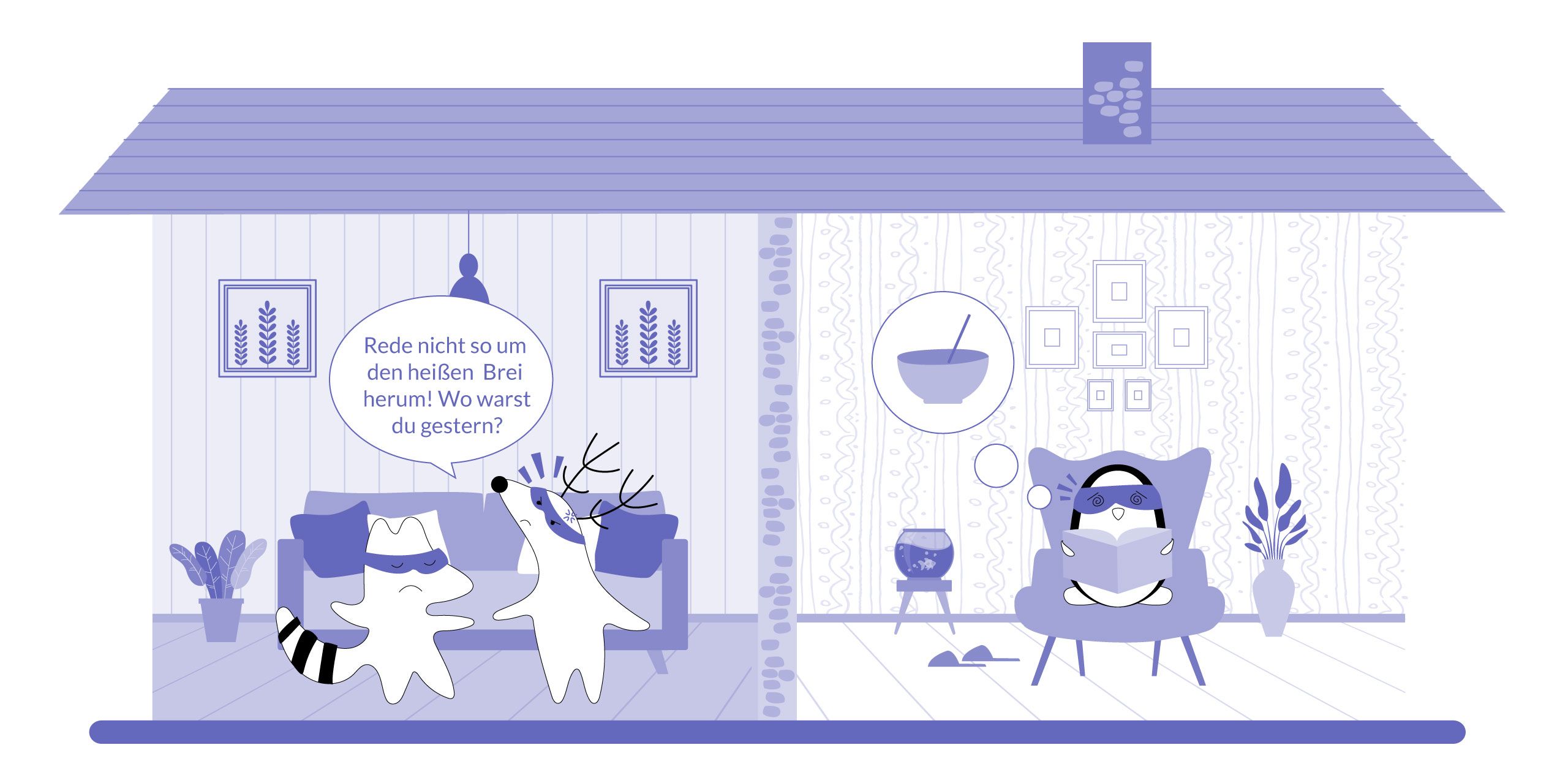
Anyone who has ever tried to learn a foreign language knows that idioms can be challenging to master. Idioms are expressions that are unique to a particular language and cannot be translated word for word. They often have multiple meanings, and their true meaning can only be understood by native speakers who are familiar with the culture and context in which they are used.
German is no exception, and it contains a wealth of idiomatic expressions that can be confusing for learners. However, understanding German idioms is important, as they help learners not only sound more like a native speaker, but also understand what locals are saying when they use these expressions in conversation.
In this article, we will explore 15 of the most common German idioms and their meanings. We will provide an English translation for each idiom, as well as an explanation of its meaning and some examples. So without further ado, let’s get started!
Learn German with Langster
Um den heißen Brei herumreden
This idiom can literally be translated as “to talk around the hot porridge,” which means to avoid talking about or discussing something directly. The English idiom "to beat around the bush" is a good equivalent, as it also means to avoid talking about something directly.
We use this idiom when we want to avoid giving a direct answer to a question, or when we are trying to avoid conflict. For example, if someone asks you what you did over the weekend, and you don't want to tell them that you stayed home and watched Netflix all day, you might say "I had a very restful weekend" instead of outright saying, "I didn't do anything."
German
English
Reden Sie nicht um den heißen Brei herum, sagen Sie mir, was wirklich passiert ist.
Don't beat around the bush, tell me what really happened.
Zwei Fliegen mit einer Klappe schlagen
This idiom is similar to the English equivalent “to kill two birds with one stone,” and its literal translation is “to hit two flies with one swat.” It means to accomplish two things with a single action or to do two things at once – and this expression has actually been in use since the 8th century.
This is a very helpful expression that you can use in many contexts. For example, imagine that your friend has been feeling down lately, but you can’t stay at home with them because you need to buy something. But you can take them shopping with you, and thus kill two birds with one stone – help your friend feel better and buy what you need.
German
English
Ich muss ein Hochzeitskleid kaufen, aber ich will nicht allein gehen. Ich schlage zwei Fliegen mit einer Klappe und nehme Maya mit, das wird ihr helfen, sich besser zu fühlen.
I need to buy a wedding dress, but I don't want to go alone. I'll kill two birds with one stone and take Maya with me, this will help her feel better.
Himmel und Hölle in Bewegung setzen
This expression literally means “to set heaven and hell in motion,” and it is used to describe when someone is trying very hard to achieve something or fix a problem. It's similar to the English expressions "to move heaven and earth," "to go above and beyond," or "to pull out all the stops."
Basically, you can use this phrase to say that you'll do anything to achieve something. For example, if your child is very sick and you're doing everything you can to make them better, you could say:
German
English
Ich werde Himmel und Hölle in Bewegung setzen, um meinen Kindern eine angemessene Gesundheitsversorgung zu bieten.
I will move heaven and earth to provide adequate healthcare for my children.

Da steppt der Bär
This idiom is literally translated as “the bear dances there,” and it's used to describe a place that is very lively and exciting. Your German friends might invite you to the party saying that there will be a dancing bear there, but don’t expect a real animal. It just means the party will be a good one.
German
English
Wenn du nach Berlin kommst, musst du ins Badeschiff gehen! Da steppt der Bär!
When you come to Berlin, you have to go to the Badeschiff! That's a hard-partying place!
Da liegt der Hund begraben
This is one of the most popular German idioms, and it literally means “that’s where the dog is buried.” Scary, right? But don’t worry – it simply means the real reason behind something or to explain what the true problem is. In English, we would say “that’s where the shoe pinches,” or “that’s the heart of the matter.”
For example, if your friend keeps asking you to go to a party with them and you find out the reason why they want to be there so much, you might say:
German
English
Ah, dein Schwarm wird dort sein? Da liegt der Hund begraben!
Ah, your crush will be there? So that's the heart of the matter!
Tomaten auf den Augen haben
This idiomatic expression can sound very funny to many language learners, but it actually has a very clear meaning. Literally translated, it’s: “to have tomatoes on one’s eyes,” but it simply refers to someone being oblivious about what is going on. Like they can see the real situations because of tomatoes on their eyes – ridiculous.
You might say this in regard to your friend’s latest boyfriend – although we hope that you never have to do so.
German
English
Du hast Tomaten auf den Augen! Siehst du nicht, wie giftig er ist?
You have tomatoes on your eyes! Can't you see how toxic he is?
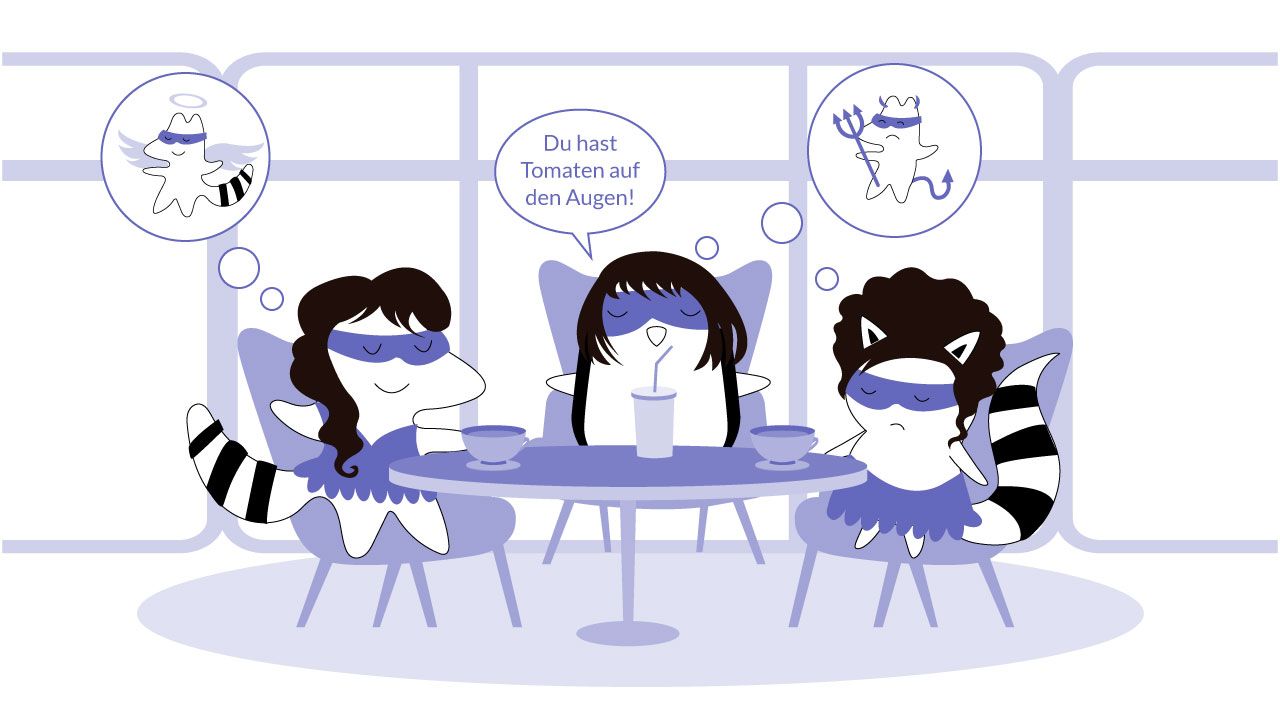
Nur Bahnhof verstehen
This funny German idiom literally means “to only understand ‘train station’,” and it is the German alternative to the English “it's all Greek to me.” It is used to describe when someone doesn't understand what's going on or what people are talking about.
The original German phrase comes from the times of WW1. At that time, soldiers on the battlefront said the only thing they understood when being given orders was the word for “train station,” since that gave them hope a train would come and take them home.
Today, it’s most often used in everyday situations – for example, when someone is talking in a foreign language you don’t know or discussing a topic you are not familiar with.
German
English
Entschuldigen Sie, könnten Sie mir noch einmal sagen, wie ich meinen Computer neu laden kann? Ich verstehe nur Bahnhof.
Excuse me, could you tell me again how to reload my computer? It's all Greek to me.
Das ist mir Wurst
Another food-related idiom on our list – but are you really surprised? It's Germany we're talking about. This idiom literally translates as “that’s sausage to me,” and it means that someone doesn’t care about something. It can be used in a lot of different situations, negative or not.
German
English
Was möchtest du heute zu Abend essen? – Das ist mir Wurst.
What do you want for dinner today? – I don't care.
Of course, you could use a traditional version of this phrase instead, “Das ist mir egal,” (I don’t care / it’s the same for me) – but what fun would it be?
Das ist nicht mein Bier
This is one of our personal favorite German idioms, and it literally means “that’s not my beer.” You can use it in a few different situations – for example, when you are asked to do something that isn’t really your job or when someone tries to involve you in a situation that doesn’t concern you.
Please note that this is not equivalent to the English phrase, “not my cup of tea,” which is a polite way of saying you don’t like something. It’s closer to “none of my beeswax.”
It can also be used as an excuse to avoid getting involved in other people’s problems. So if your friends are arguing and you don’t want to take sides, you might say:
German
English
Das ist nicht mein Bier!
It's none of my business.
Seinen Senf dazugeben
This idiom is very similar to the English “to put in one’s two cents,” and it means that someone wants to give their opinion on a situation – even if nobody asked for it. It’s literally translated as “to add one’s mustard” and has many alternatives in different languages – for example, French.
The phrase can be used both with a positive and negative connotation. Sometimes it might be helpful to have a second opinion, but other times people just want to gossip and you might not want to listen to them.
German
English
Wir haben über Politik gesprochen, und da wollte ich natürlich meinen Senf dazugeben.
We were talking about politics, so, naturally, I wanted to put my two cents in.
Alles hat ein Ende, nur eine Wurst hat zwei
This phrase literally means “everything has an end, only the sausage has two.” Basically, it is used to describe that everything comes to an end eventually. The classical German sausage reference just makes it funnier – and a bit more poetic.
In English, we would simply say “all good things must come to an end” or “nothing lasts forever.”
We can use this expression when something has come to an end and somebody is feeling sad about it. For example, if you finish a great book and talk to your friend about that, this conversation can happen:
German
English
This book was so good, I'm so sad that I finished reading it… – Aber alles hat ein Ende, nur eine Wurst hat zwei.
This book was so good, I'm so sad I finished it.... – All things must come to an end though.
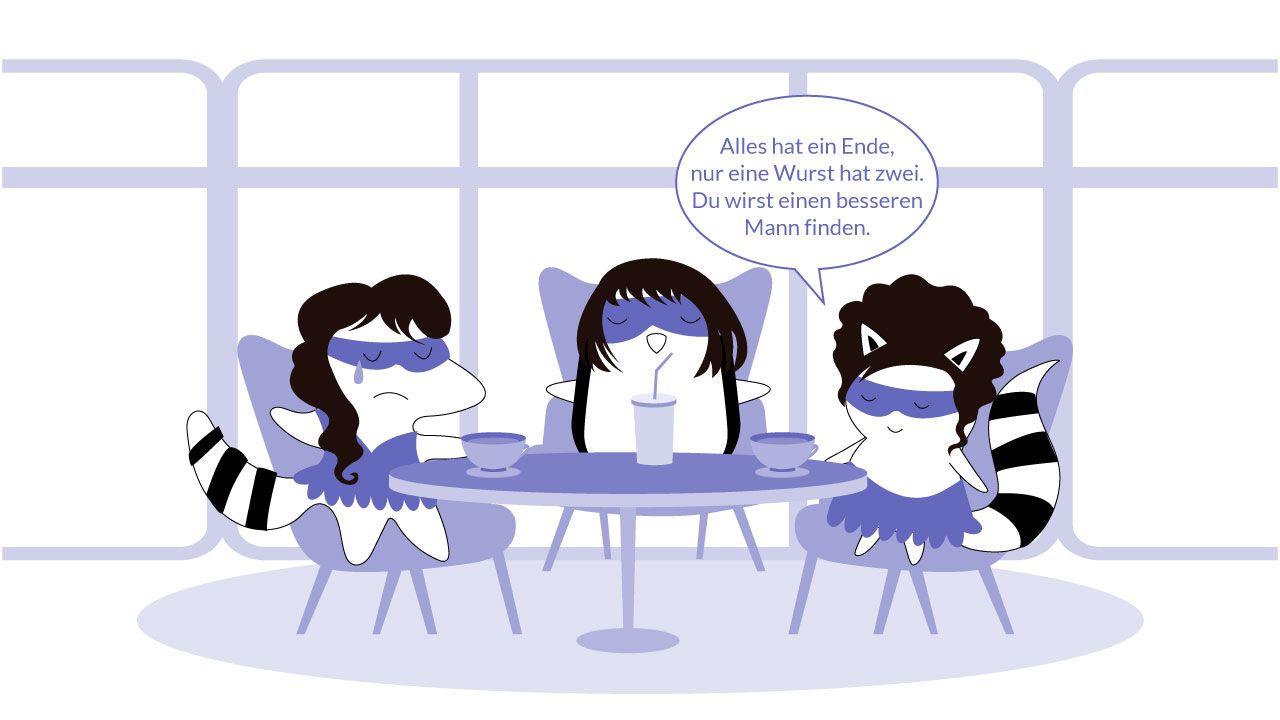
Abwarten und Tee trinken
This is one of the more famous German idioms, and it is used when someone wants to tell you to be patient and wait for something to happen. Literally translated, it means “to wait and drink tea,” and this might be the background for the famous meme "to keep calm and drink tea."
In English, we would use a simpler phrase: "to wait and see."
German
English
Mama, was gibt es heute zu essen? – Abwarten und Tee trinken.
Mom, what do we have for dinner today? – Wait and see.
Die Kirche im Dorf lassen
This is a rather old-fashioned idiom, but it’s pretty funny, and you might still hear it from time to time. It literally means “to leave the church in the village,” and it is used when someone wants to tell you not to make such a big deal out of something.
In other words: keep things in perspective and don't overreact. Don’t do anything crazy, like trying to move a small village’s largest building.
German
English
Ist es wirklich so schlimm? Die Kirche im Dorf lassen!
Is it really that bad? Don’t get carried away.
Schwein haben
This amusing German idiom literally means “to have a pig.” It doesn’t mean anything negative though, as many might think. On the contrary – this phrase is used to describe how lucky someone is. This is especially interesting taking into account how the word “schwein” is often used as a curse in German.
It can be used in many different situations where you are happy for someone – for example when they win the lottery, or get a new job, or even if the weather is nice during a certain event.
German
English
Wir hatten ein Schwein mit dem Wetter für unseren Hochzeitstag!
We got lucky with the weather for our wedding day!
Fix und fertig
This phrase describes how exhausted someone is – both physically and mentally. A literal translation would be “fixed and done,” but in English, we would describe the same feeling with phrases like “dead on one’s feet” or “ready to drop.”
This expression is often used after a long day at work, or after sports, when your muscles are really sore. It can also describe how you feel after a night of little to no sleep.
German
English
Ich bin fix und fertig!
I'm dead on my feet!
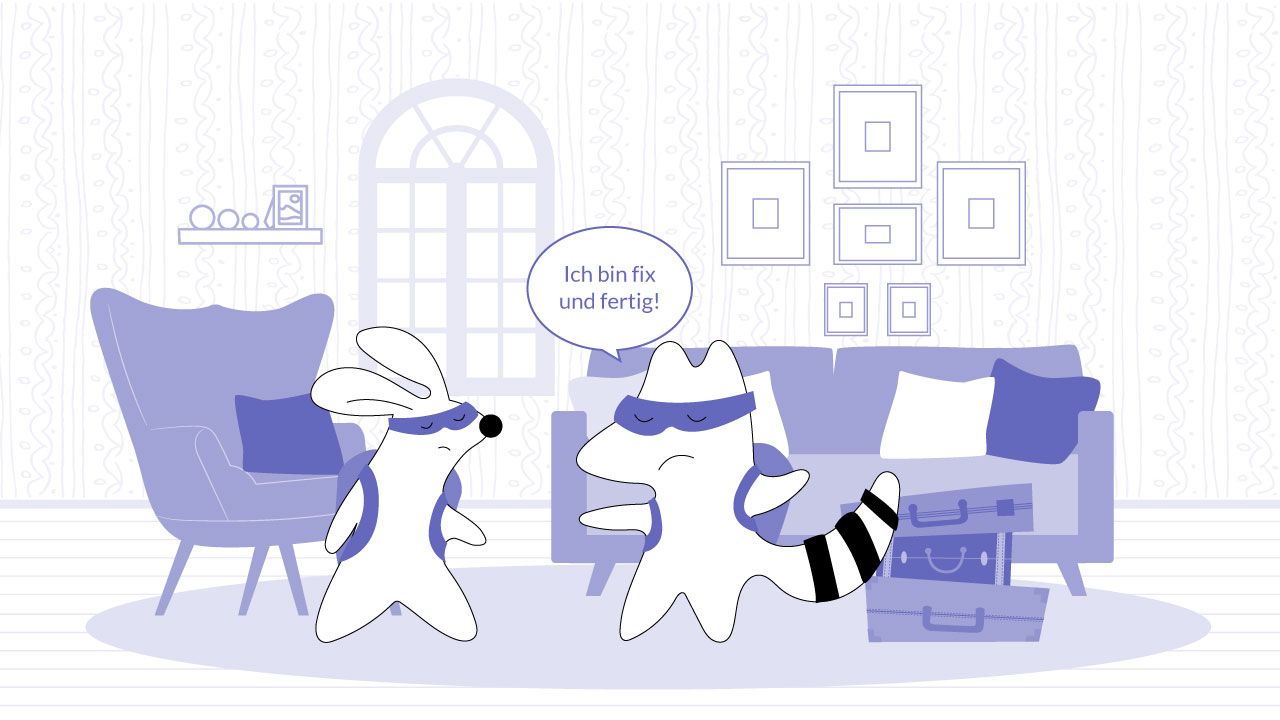
German Idioms: The Road to Knowing German Culture
German idioms aren’t just restricted to the language – they also teach you about customs, traditions, and how Germans think. They are a rich and fun way to learn about the German speakers and all that surrounds them.
While many literal translations of German idioms can be quite different from similar expressions in English, they often sound more interesting and simply are funny to learn. So instead of challenges that they can bring to the language learning process, think about all the amusement you will get when you learn them.
And, if you need a bit more motivation, remember – idioms are one of the best vocabulary words that can help you speak German fluently and feel like a native speaker. So don’t forget about them during your practice conversations in the German language.







